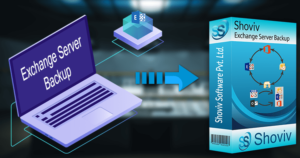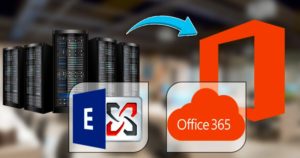There are times when we accidentally delete stuff and then regret it. However, if you accidentally deleted your public folder in Exchange server, recovering it becomes crucial.
What are Public folders and why are they important?
Public folders are created so that companies can collect, organize and distribute business information within the company and the workplace group. All the data stored within these Public folders is stored in particular destinations known as Public Folder databases. The data within these folders is stored in the EDB format like other files.
Since Public folders contain confidential company information in a shared common space, any accident on individual part can prove to be disastrous. Public folders may contain classified plans or information that could be immensely valuable. This is why we cannot afford the loss of data or accidental deletion of the Public folder.
Download a trial version of Shoviv Exchange Recovery Manager to know in a better way.
How to recover accidentally deleted public folder in Exchange server?
Now, let us assume that the worst has happened and you have deleted the Public folder by mistake. What are you going to do? This could mean a loss of millions to the company. You need a complete public folder recovery.
Don’t get too terrified, we have the solution for you. You will be able to recover the deleted Public folder in Exchange server by the end of this post.
There are two ways to recover accidentally deleted public folder in Exchange server.
- The manual method which involves skillful manual public folder recovery
- With the help of third-party automated software
We will go through both the methods and you can choose how you want to recover your deleted Public folder.
The Manual Method
Method 1: Using Exchange Management Console
Note: Before you begin the public folder recovery, you should restore the exchange database to another location from Exchange Backup with the Windows server backup tool.
- Launch the Exchange Management Console. Choose the Microsoft Exchange Option, select “Server Configuration”. Select “Mailbox”
- Choose the Exchange Server name/credential from the list of servers
- Select the name of the public folder database that you want to restore
- Select the “Dismount database” from right-click menu to dismount the database
- Now, open the properties by right clicking
- Choose the box at the bottom which says “This database can be overwritten by a restore”
- Apply the chosen setting
Restore the Public Folder Database
You have to replace the restored public folder to the dismounted location in order to restore your Public Folder.
- Copy the restored public folder database to where the Exchange Public folder database is restored. You can find it generally at C:\Program Files\Microsoft \Exchange Server\Mailbox\
- Continue by renaming the old database like you want. Then paste the restored Public Folder Database. (Make sure that the pasted Public Folder Database’s name is identical to the earlier database)
- Launch Exchange Management Console and choose “Remount” to remount the database
Method 2: Using ExFolders in Exchange 2010 for recovery
Using the ExFolders method has a little advantage over the previous manual method. You do not have to make any database backup to perform the recovery. Now let us find out how you can recover accidentally deleted public folder with ExFolders recovery method.
Download ExFolders tool for Exchange Server 2010.
For Exchange Server SP1 and later, download through this link:
https://gallery.technet.microsoft.com/exchange-2010-sp1-exfolders-e6bfd405
For Exchange Server 2010, download through this link:
https://gallery.technet.microsoft.com/Exchange-2010-RTM-ExFolders-c76c3649
Run ExFolders from Exchange
(Note: Make sure that the ExFolders.exe is stored in the Exchange bin folder)
- Launch ExFolders
- Go to File Menu>Connect
- Choose Public folders >Global Catalog
- You are at the Public Folder tree, go to the top-level folder
- Right-click on it>Show deleted subfolders option. After you do this, you will see the deleted folder in red characters
- Click on the folder that re-appeared in red and clicks on the “Recover Folder” option
- Your deleted Public Folder will be recovered and you can now access it
This is how you can recover accidentally deleted Public folders in Exchange server manually.
So these were the manual methods of Public folder recovery. However, manual methods come with drawbacks.
Here are the limitations of manually recovering accidentally deleted Public Folders
You must have realized that to recover accidentally deleted public folder in Exchange server manually is very complicated and involves a lot of steps. To do such a task needs skill and experience. You cannot overlook the fact that even a small mistake can cause data loss. So if you want to avoid these setbacks and wish for easy and effective Public Folder recovery, you should take the smarter alternative.
Automatic Method: Get the Shoviv Exchange Recovery Manager Today
The Shoviv Exchange Recovery Manager is a certified recovery and backup tool that can recover your entire database in just a few clicks. The tool is powerful and works at high speeds to recover and restore Public EDB file or Single Source mailbox to Live Exchange, Office 365 Public folder or Archive Mailbox. This tool makes Public folder recovery an easy task for even beginners who have never done it before.
Why choose this tool?
The tool guarantees to protect your data and ensures that you don’t lose any items in your database. You get 100% assurance of accuracy in results without having to do anything complicated. This tool is reliable and trusted by users from all across the world. If you want to recover accidentally deleted Public folder or any other corrupted EDB file, this is the perfect choice to make.
Get a free trial today
The free demo of the Shoviv Exchange Recovery Manager tool is now available for download. The free trial allows you to convert first 25 files for each folder for a limited time. Once you are sure that it works for you, you can upgrade to the economical full version. You can then easily recover any accidentally deleted public folder in Exchange server.
To download the free trial of the tool, click here.
- How to Backup and Restore Emails in Webmail? - March 25, 2025
- How to Migrate Outlook to New Computer? - February 15, 2025
- Fix If Outlook Cannot Display the Specific Folder Location - February 1, 2025




